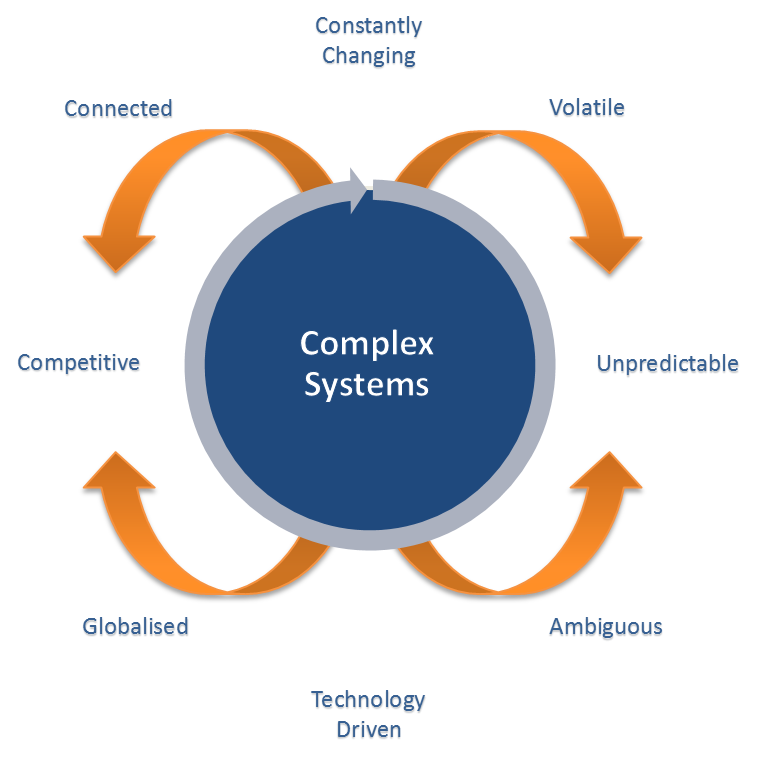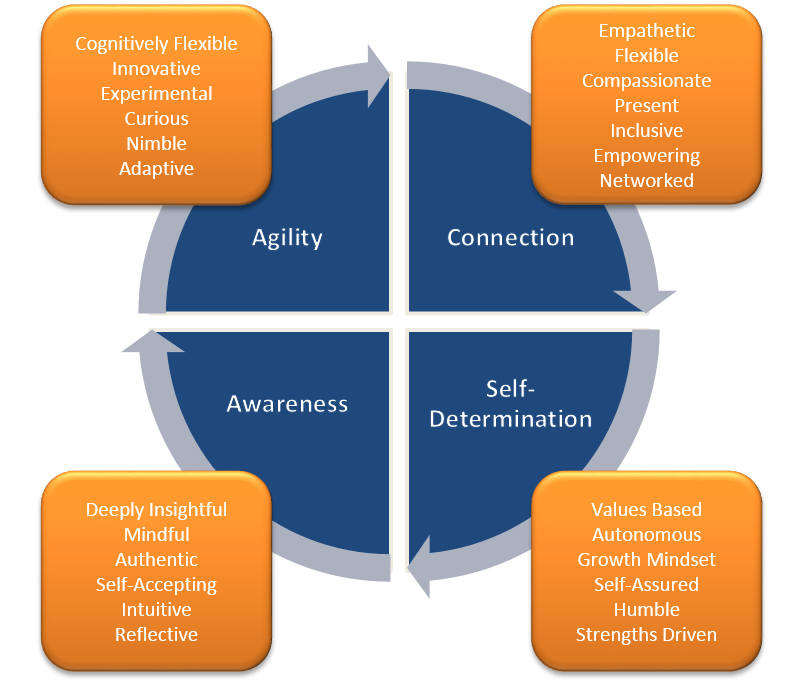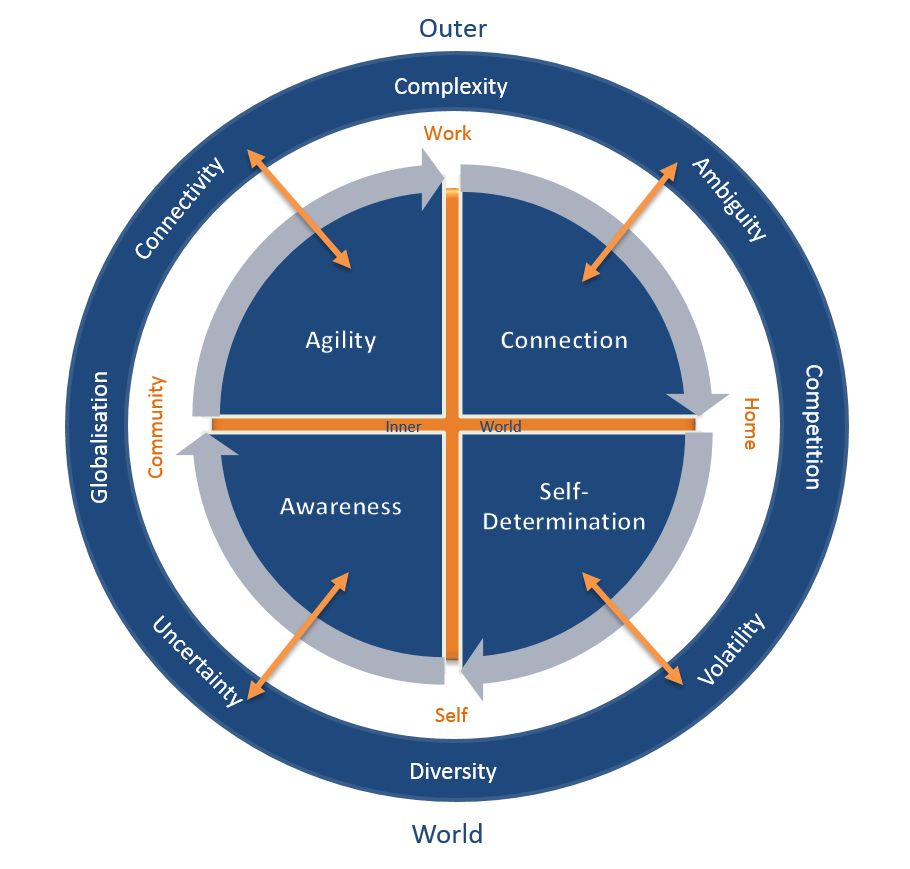Most people acknowledge that the world around us is increasingly ambiguous, unpredictable and volatile, with unprecedented levels of change and uncertainty. Never before has it been this difficult to be a leader due to such progressively complex dynamics. Organisations are constantly exposed to rapid shifts in market and customer expectations; higher employee demands across diverse generational demographics; increased competition over globalised networks; as well as a more technologically savvy and connected world that is constantly evolving.  It is not surprising that leaders and other key talent are struggling to keep up and that rates of psychological stress and burnout are at unparalleled levels. Yet despite all of this change, most organisations still take the same approach to talent and leadership development that they have always taken, applying old solutions to new challenges. We believe this approach needs to be transformed.
It is not surprising that leaders and other key talent are struggling to keep up and that rates of psychological stress and burnout are at unparalleled levels. Yet despite all of this change, most organisations still take the same approach to talent and leadership development that they have always taken, applying old solutions to new challenges. We believe this approach needs to be transformed.
A shift in focus
To meet the demands of this ever-changing environment, organisations need to start thinking differently about how they best prepare their leaders and talent for an uncertain future. It is no longer sufficient to rely on competency driven frameworks that map out and predict the specific requirements of leaders at each level of an organisation. This expertise driven model, which assumes predictability and stability, will ultimately be out-dated as soon as it is implemented. It is also not possible to predict future requirements based on past experiences; or therefore feasible to define an ideal model of leadership. Equally it is not enough to view leaders solely from the perspective of an operational hierarchy with a clearly defined succession pipeline, or to rely on fixed methods of assessing and developing potential. There needs to be a shift away from static methodologies and content heavy programs to instead focus on helping existing and emerging leaders to become more agile and adaptive – to support them in learning how to learn.
Inside-Out
To enable this shift, it is necessary to move away from a primarily ‘outside-in’ perspective of development to one that begins with a rich understanding of a individuals’s inner world. This ‘inside-out’ approach will constantly evolve as new insights are discovered and old assumptions are tested or adapted.  To be successful, we believe it is imperative that key talent adopt a more open and fluid approach to their development, recognising that as they experiment with new techniques in the ‘outer world’ they will continually advance their own self-understanding. This will require individuals to be more agile as they adapt to the changing context and learn from their activities, building a much richer and more nuanced insight to their own inner psychology. It will be critical that they use this emerging awareness to take a self-determined path that is deeply rooted in their core values and backed by a commitment to their unique purpose. Through being their most authentic selves – assured, yet humble – leaders at all levels will build richer and more meaningful connections with others that are centred on creating shared outcomes. Those that thrive in this dynamic and demanding context will have to let go of egocentric ideals and prioritise the inherent opportunity and value represented by the collective effort.
To be successful, we believe it is imperative that key talent adopt a more open and fluid approach to their development, recognising that as they experiment with new techniques in the ‘outer world’ they will continually advance their own self-understanding. This will require individuals to be more agile as they adapt to the changing context and learn from their activities, building a much richer and more nuanced insight to their own inner psychology. It will be critical that they use this emerging awareness to take a self-determined path that is deeply rooted in their core values and backed by a commitment to their unique purpose. Through being their most authentic selves – assured, yet humble – leaders at all levels will build richer and more meaningful connections with others that are centred on creating shared outcomes. Those that thrive in this dynamic and demanding context will have to let go of egocentric ideals and prioritise the inherent opportunity and value represented by the collective effort.
Systems view
From a systems perspective, organisations will need to recognise that there are leaders at all levels, not just at the top. Development programs must learn to tap into this resource and provide a voice to everyone within the system if they are to truly capitalise upon diversity and drive greater opportunities for innovation and non-linear collaboration. The focus needs to move away from expert driven top-down thinking and instead promote opportunities for leader driven development that begins with the inner world and is emergent and generative in nature. In addition, greater emphasis needs to be given to supporting leaders and other key talent in adopting a more holistic and vertical approach to development that encourages a deeper understanding of who they are, in parallel with broader attention to their overall psychological health and wellbeing.
An Integrated & Adaptive Approach
Optim’s approach to development builds upon these themes and focuses on the dynamic relationship between a individual’s inner and outer worlds, recognising that this is a complex system in and of itself. We believe it is essential to adopt a more agile approach that recognises there are many possible lenses and channels to individual and collective development. Our approach is to be more open and adaptive, responding to change as it occurs through a curious and growth oriented mindset. We encourage individuals to step in and out of complexity as a way of developing a deeper awareness, constantly experimenting with new ways of working and integrating the learning that comes from each new experience. We also recognise that development occurs in many different settings and rarely in isolation. There will not be a standard solution that applies across all contexts – much like the people themselves, development needs to be more agile to continuously incorporate and build upon the rich learnings that emerge. 
We are passionate about combining an individual focus with the more adaptive possibilities that are presented through collective development and real-time action projects. We pride ourselves on bringing both commercial pragmatism and robust psychological insights to really test existing ways of working and create more substantive outcomes. We believe in pushing the boundaries of what might be possible by supporting and challenging people to more actively strive for organisational impact; to passionately inspire engagement in their people and stakeholders; to foster innovation and build a culture of ideas; and to continually shift and adapt their own thinking to really be the best that they can be.
It is our goal to help leaders and key talent to thrive in an ever changing and complex world.
